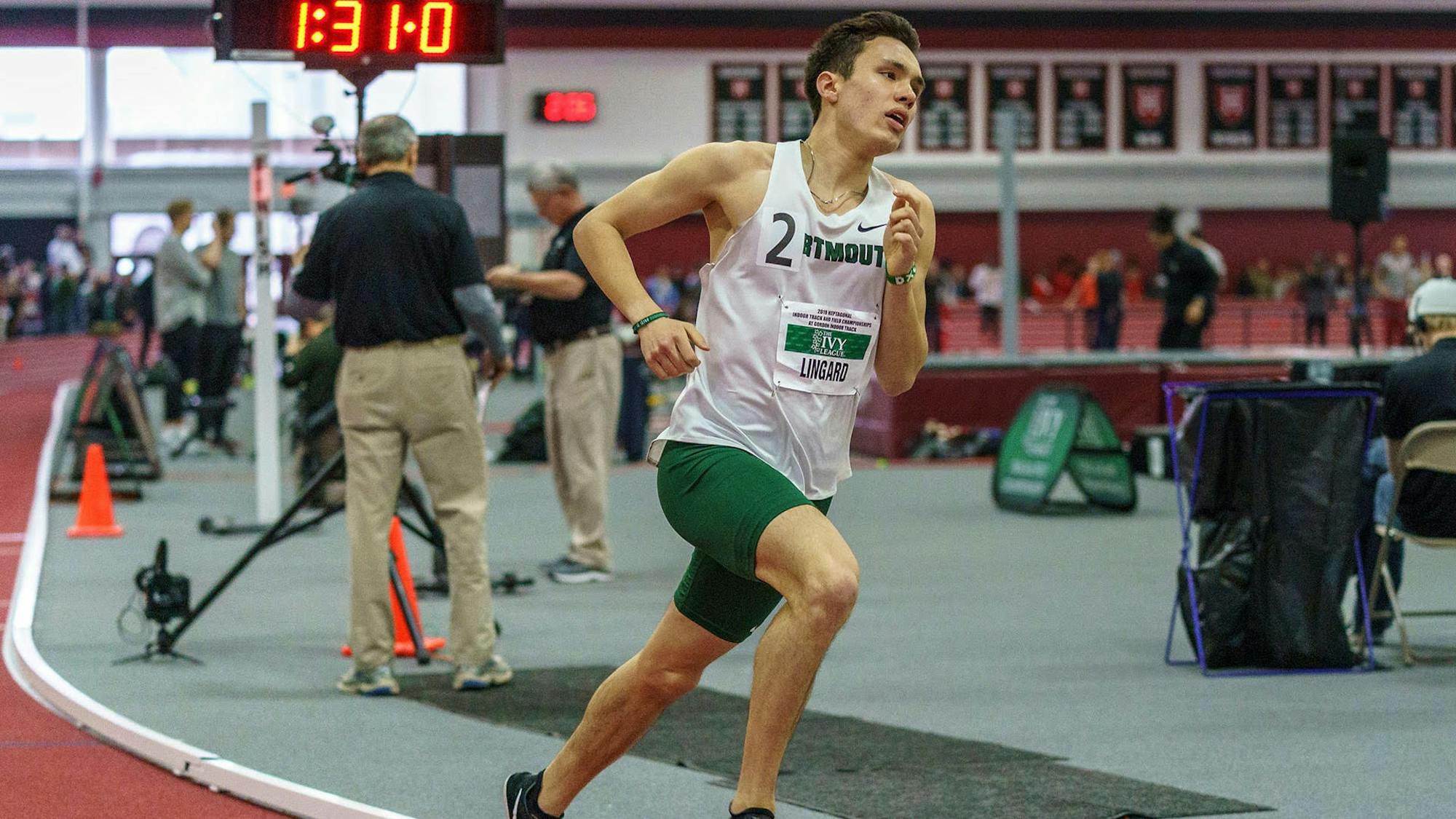As a senior captain of the middle distance running team, Thomas Lingard ’22 said that being in his senior spring has “recontextualized” what it means for him to be a student-athlete. According to Lingard, serving as a source of encouragement for his team and simply “enjoying the process” are the objectives at the forefront of his mind this season.
“It’s more like I’m going to train, I'm going to get to these races, but it’s been a good career,” Lingard said. “It’s been a good run, so whatever happens happens.”
As a freshman from Cambridge, Mass., Lingard described feeling “out of place” and experiencing some “imposter syndrome” when he first arrived in Hanover. He attributed coming to feel at home with the team due to the guidance of the team’s upperclassmen — then ’19s and ’20s. After spending time as an underclassmen focusing on his personal successes, Lingard said that he has expanded his mindset so that his leadership benefits the wellbeing and encouragement of the team.
“I think he is the heart of our team,” fellow mid-distance runner Aidan Robinson ’24 said. “He is always bringing an enthusiasm that sometimes we don’t have.”
Robinson said that even in the team’s most mundane moments — lifts after workouts — Lingard “will always get super hyped up,” and that he brought “so much energy to lifts when there is none.”
Distance runner Isaac Weber ’22 said that Lingard was one of the first to welcome him to the track team after Weber walked on his freshman fall, praising Lingard’s support as a teammate and a friend.
“[Lingard] is incredibly loyal and principled,” Weber said. “If he says he is going to do something he does it, and that applies to the track.”
Weber recalled this discipline during an indoor race in their sophomore winter in which Lingard had the flu and was feeling sick in the moments leading up to the 1000-meter race. After deciding to race anyway, Lingard shot out ahead of everybody at the 800-meter mark. Weber and a fellow teammate were able to ride Lingard’s momentum, placing first, second and third and all achieving personal records by about three seconds each.
“I saw him just shoot past me like a bat out of hell,” Weber said. “It was an awesome example of active leadership. He was racing well for himself, but he also made the move there…to also motivate me and my friend at the end of the race.”
That same winter, Lingard placed fourth at the Ivy League Heptagonal Indoor Track and Field Championships for which he recalled being in “the best shape of his life.” While Lingard was looking forward to keeping that form in the spring outdoor season, the pandemic ended those hopes.
“For a while there we didn’t even know when we were going to have to race next,” Lingard said. “Having to train through that was probably one of the biggest challenges I’ve had to face as an athlete at Dartmouth.”
Now, after two years off of the track, Lingard reflected on his proudest moments in a new way that centers the team: “seeing victory at [the regional] New England [meet], being a threat at Heps, putting ourselves in the ring and being able to fight against competitive teams — I’ve been most proud of being part of something bigger,” Lingard said.
As the track and field team moves deeper into its outdoor season, Lingard said he is focused on wanting to prove himself after losing three outdoor seasons to COVID-19.
“I still feel like I have some pretty lofty goals for the season,” Lingard said. “I feel like I’ve gotten into pretty good shape and I feel like I haven’t really been able to prove myself outdoors since I’ve only had one real outdoor season at Dartmouth.”
Lingard, who is a computer science modified with engineering major, plans to move to Boston after graduation to work as a software engineer at a cybersecurity firm.




